The Peloton brand is taking Europe and hotels by storm. We spoke with Daniel Sprung, senior director at Peloton, about the importance of wellness, a strong community and how personalization in fitness also works when traveling.
What is the mission of Peloton?
Daniel: Peloton’s mission is to use design and technology to connect the world through fitness so people can become the best version of themselves. It’s also to make fitness available anytime, anywhere.
How do you do that?
Daniel: We have three building blocks: The hardware, the software and the content. The hardware consists of the bike, a rowing machine or the treadmill. The software is the app that allows you to get the content and connect with the community, and the content is all the training videos that also make it possible to train anywhere, anytime. The idea when Peloton was founded was already not only to train in the studio at the spinning class in the cool New York studio, but also to be able to take the experience home with you including the instructor.
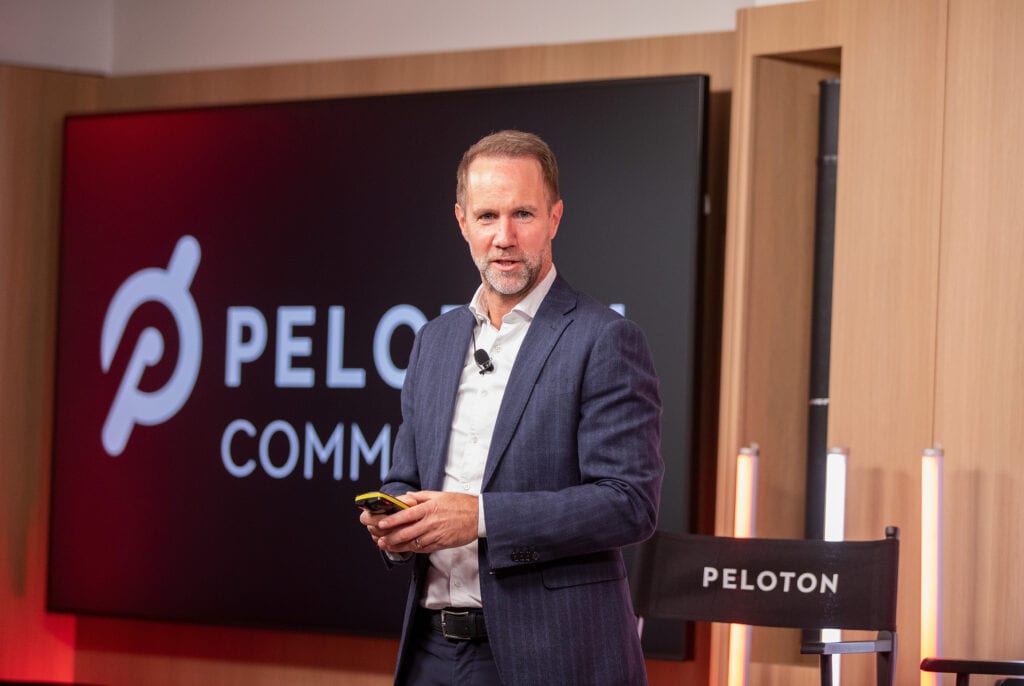
When you hear the word wellness, most people think of spas and saunas. You have your own definition of wellness, what is it?
Daniel: We understand wellness holistically and in no way passively. Holistic means taking care of your physical and mental health. For us, it’s about actively working on one’s “well being”, even if that means sleep meditation. Because even then you are actively doing something to make yourself feel better. Mental health is an important topic and we cover it with guided meditation.
You are convinced that when people travel, they also want to follow their personal training plan. In the past, people just didn’t want to do anything on vacation …
Daniel: Our research in the Hilton Trends Report 2023 shows that 50% of travelers want a physical or mental wellness component to their next trip, and they want to continue their routine at home when they travel. The way people manage their own health and fitness has changed. Offering hyper-personalization, along with a sense of community, is our key to success.
What does hyper-personalization mean?
Daniel: Hyper-personalization is not new, pioneering brands started doing it years ago with products and experiences. But post-pandemic, this trend has seeped into the fitness and wellness space. Consumers have also become accustomed to seamless experiences at home, using their devices to work out anywhere, anytime. And they want to track their workouts – but that tracking needs to be digitized and super simple. All of these changes will continue and can be effortlessly lived with Peloton.
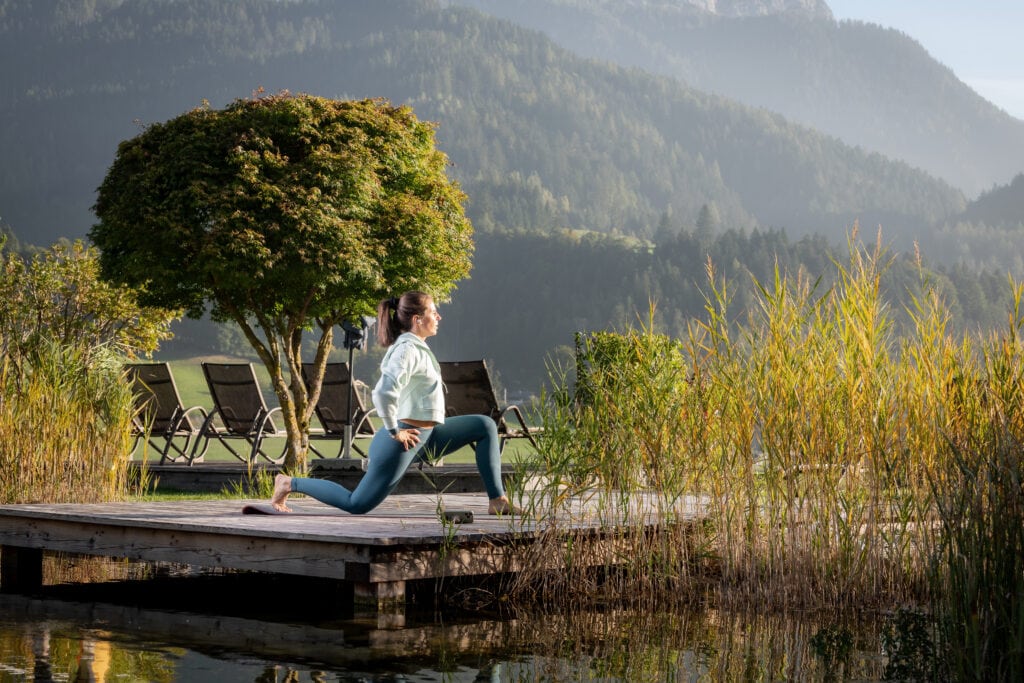
The peloton community is pretty strong. Why do people want to train alone, but then not be alone?
Daniel: There is generally an increased demand for a sense of community. I think that also has to do with the pandemic. People are at home but still seek contact with the outside world. For this new “omnichannel consumer,” Peloton offers the ability to consume a wellness menu from the comfort of their hotel room, the moment they consume the content through the app or on a bike. If they want to be with other people, they can hop on a Peloton Bike at the gym. If they prefer to run or meditate outdoors, they can take a class. If they want to wind down at the end of a long day, they can do a 10-minute sleep meditation – all through the Peloton app. It’s location-independent, cross-channel and always trackable. Hotel guests have a choice and hoteliers offer an exceptional guest experience.
Could you say that Peloton has democratized fitness?
Daniel: I would certainly agree with that statement. No matter what your personal fitness level is, the programs in our app offer the right workout for everyone. You can control your personal success and get from level to level. But there is also no stress involved. It should simply be fun. From “beginners” to professional athletes – everyone is united by a sense of community. The community is our backbone, it’s what we do best. And we know that people want to maintain all of these behaviors while traveling. 90% of Peloton members surveyed would rather stay in a hotel if there was a Peloton bike. By the way, more than 1.6 million Peloton rides were made in hotels in 2022.
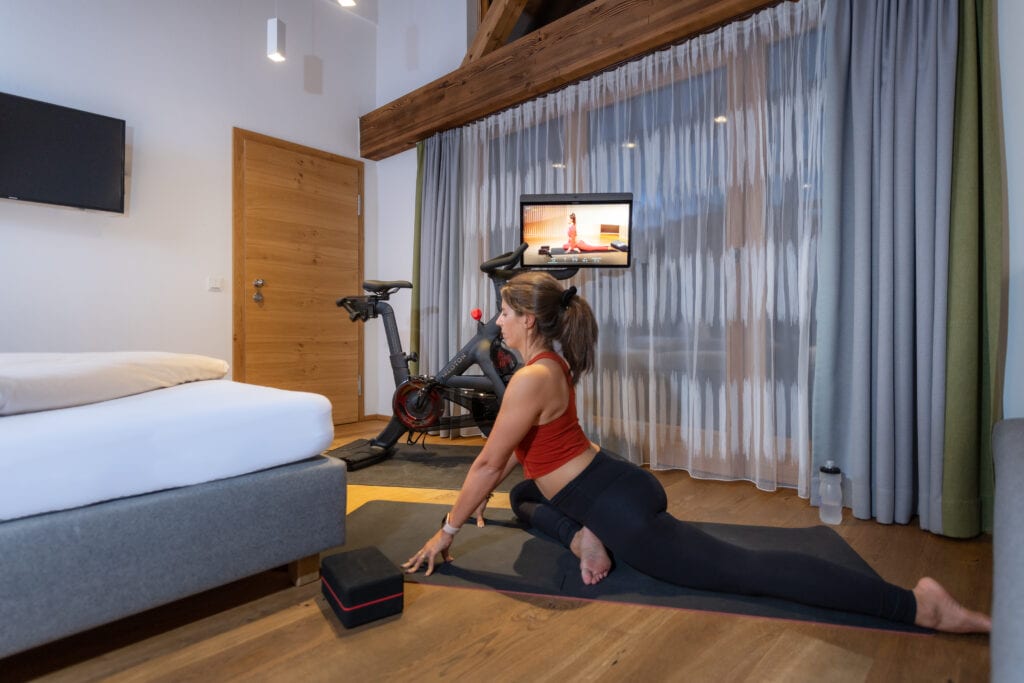
About Daniel Sprung and Peloton
Daniel Sprung is senior director international, partnerships and commercial at Peloton. Peloton provides members with expert guidance and uniquely crafted content to create impactful and fun training experiences for everyone, everywhere, at every stage of their fitness journey. Whether at home, in nature, on the road or in the gym, Peloton combines motivating classes, cutting-edge technology and hardware, and the Peloton app with multiple layers to personalize the Peloton experience with or without equipment. Peloton was founded in 2012 and is headquartered in New York City. Peloton has nearly 7 million members in the U.S., U.K., Canada, Germany and Australia, and since mid-October, in Austria.
Peloton x Lifestylehotels
With the market entry of Peloton in Austria, Peloton and Lifestylehotels enter into a strategic partnership. This brings together the best fitness content and equipment with the best hotels in Austria. Together they share the vision of holistic well-being while traveling.
Peloton in numbers
- Nearly 7 million members in the Peloton community.
- 50+ Peloton coaches for all fitness modalities (US + UK + DE).
- Members have completed over 1 billion courses on our platform (app and all-access subscribers)
- 16 fitness modalities are offered on the Peloton platform
- More than 1,200 courses are created each month
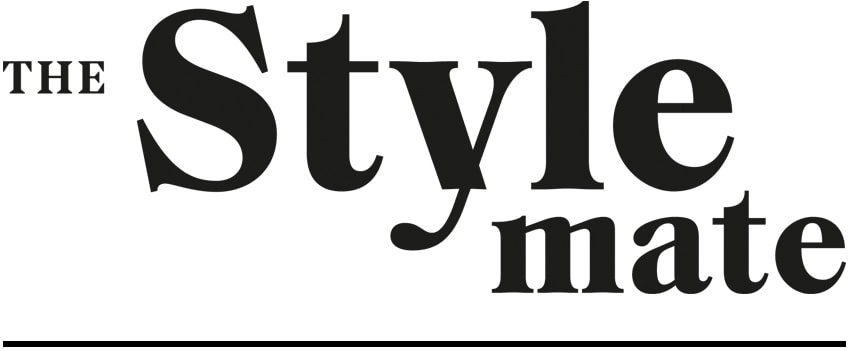
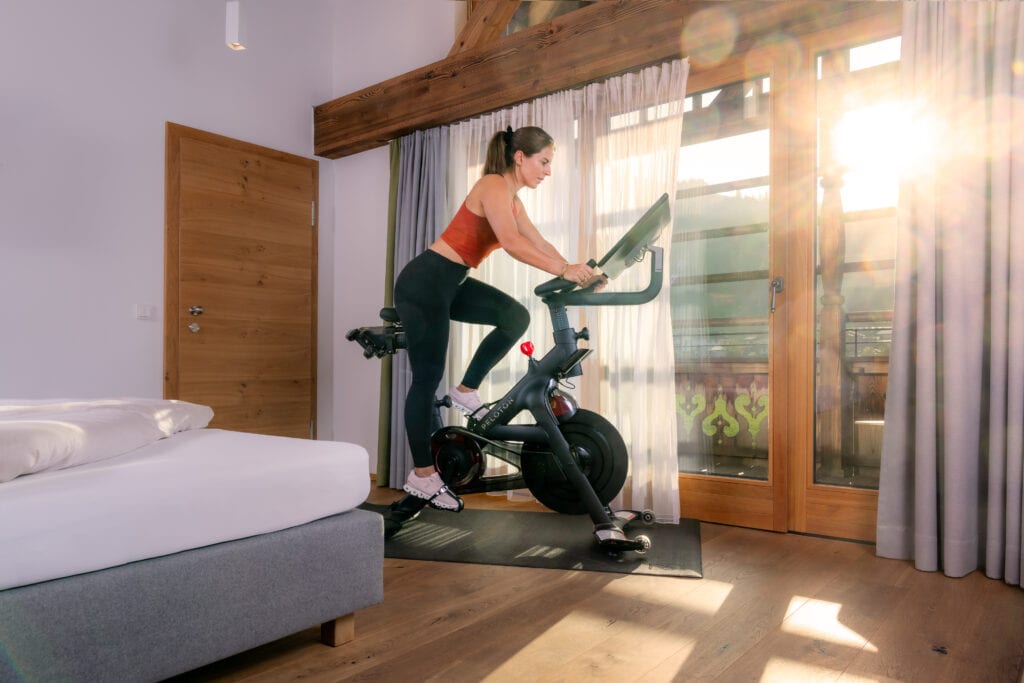
iThere are no comments
Add yours